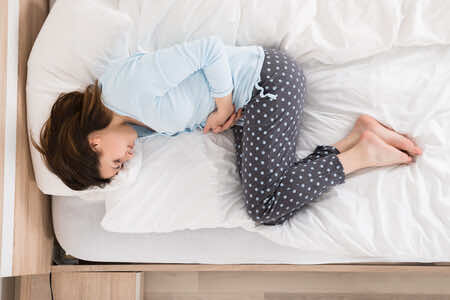IBS: IRRITABLE BOWEL SYNDROME
IBS affects the digestive symptoms, causing some changes in bowel habit, and painful, bloating symptoms. If you're suffering from any digestive symptoms, please do not hesitate in booking in a GP appointment at London Doctors Clinic, to investigate and treat or manage whichever underlying condition you may have.
What is IBS?
Irritable bowel syndrome (IBS) is a common disorder, causing a range of uncomfortable digestive symptoms. Its cause is unknown, but it affects up to 20% of the population, and is twice as common in women as it is in men.
IBS is a chronic condition, affecting people for many years, although it may come and go in periods of greater and lesser severity.
Symptoms of IBS
Symptoms of IBS include:
- Abdominal pain or stomach cramps
- Diarrhoea
- Constipation
- Flatulence
- Bloating of the stomach
- Frequently feeling an urgent need to go to the toilet
Often, IBS symptoms can be worse after eating, and may get better after going to the toilet. Less commonly, sufferers of IBS may experience other symptoms, such as:
- Lethargy
- feelings of severe tiredness or a lack of energy
- Nausea
- Problems urinating
- Back pain
People with IBS can sometimes experience feelings of depression and anxiety

The most common IBS symptoms include constipation, diarrhoea, stomach cramps and increased frequency and urgency in going to the toilet
Types of IBS
IBS can be classified into 4 different subtypes:
- Diarrhoea-dominant
- Constipation-dominant
- Both-dominant
- Neither-dominant
What Causes IBS?
Unfortunately, the cause of IBS is unknown, but there are several theories put forward by experts as to why it might arise.
It could be triggered by an intestinal infection that disturbs the natural populations of harmless bacteria that live in the gut. The imbalance of normal bacteria may contribute to digestive difficulties and IBS symptoms.
Also, some believe that IBS may be linked with infections of the intestines by certain types of yeast, such as Candida species, or by parasitic protozoal infections, such as blastocyctosis. However, there is no conclusive evidence that these conditions are linked to IBS, and research into this topic is ongoing.
Another theory is that IBS is related to disturbances in signalling between the nervous and the digestive systems, which occurs normally to control gut activity. The involvement of the nervous system may contribute to psychological symptoms of anxiety and depression in IBS sufferers, and may be a reason why stress can be a trigger.
IBS Symptom Triggers
Although the cause of IBS isn't known, there are several things that can trigger exacerbations of symptoms in sufferers. Some common triggers for IBS symptoms include:
- Drinking alcohol or fizzy drinks
- Eating processed meats
- Eating foods containing large amounts of fat or sugar
- Chocolates
- Crisps
- Biscuits
Whether something triggers IBS symptoms varies between people, so it is often recommended that patients keep a food diary, documenting what foods they eat and whether they experience and pain, discomfort, or changes in bowel habit, to try and find out which foods affect them. As mentioned, stress can trigger IBS symptoms too, and strategies for managing stress can to manage them.
A food diary is crucial in identifying patterns and triggers of IBS symptoms
Diagnosing IBS
Most diagnoses of IBS are performed by a GP based on the symptoms experienced by the patient. There are no absolute tests for IBS, but if a patient reports certain “red flag” symptoms that could be suggestive of more serious disease, such as:
- Blood in the stool
- Significant, unintentional weight-loss
- A large lump or mass in the stomach
If any of the above symptoms are noted, doctors may decide to perform a range of tests to rule out other issues.
Managing IBS
There are no treatments to cure IBS, but the condition may be managed and symptoms reduced by changing a variety of lifestyle factors.
Keeping a food diary to track any foods that cause a flare in symptoms so that they can be avoided is a common and effective strategy. Altering intake of dietary fibre, usually to take less insoluble fibre (such as that found in wholemeal breads, bran, and brown rice) in cases of large amounts of diarrhoea, or to take more soluble fibre (such as that found in oats, or in soluble fibre supplements) in cases of constipation, may help reduce those symptoms.
Guidelines also suggest drinking more un-caffeinated fluids and less caffeine, alcohol, and fizzy drinks, as well as avoiding processed foods and aiming for a target of 150 minutes of moderate physical activity per week. Research is ongoing into how best to manage IBS symptoms, so patients should seek the advice of their GP before making major dietary or lifestyle changes.

Fizzy, caffeinated drinks often exacerbate IBS symptoms
So if you're struggling with any unusual bowel habits, such as constipation or diarrhoea, or any of the above symptoms, we recommend you book a GP appointment right away. There are a plethora of causes for simple symptoms such as constipation or diarrhoea, but it's better to be safe than sorry, by working with your private GP to rule out any more sinister causes.

